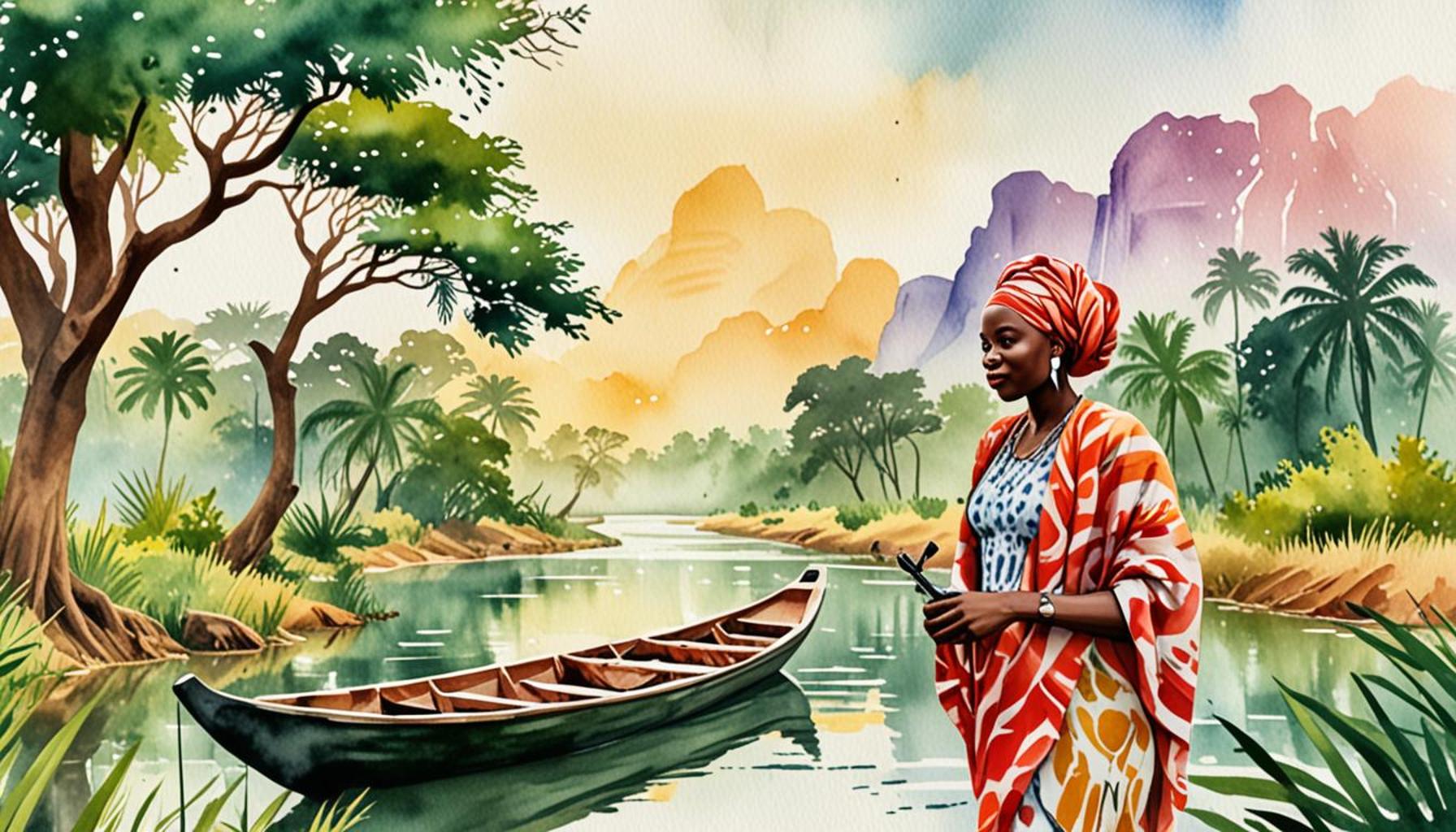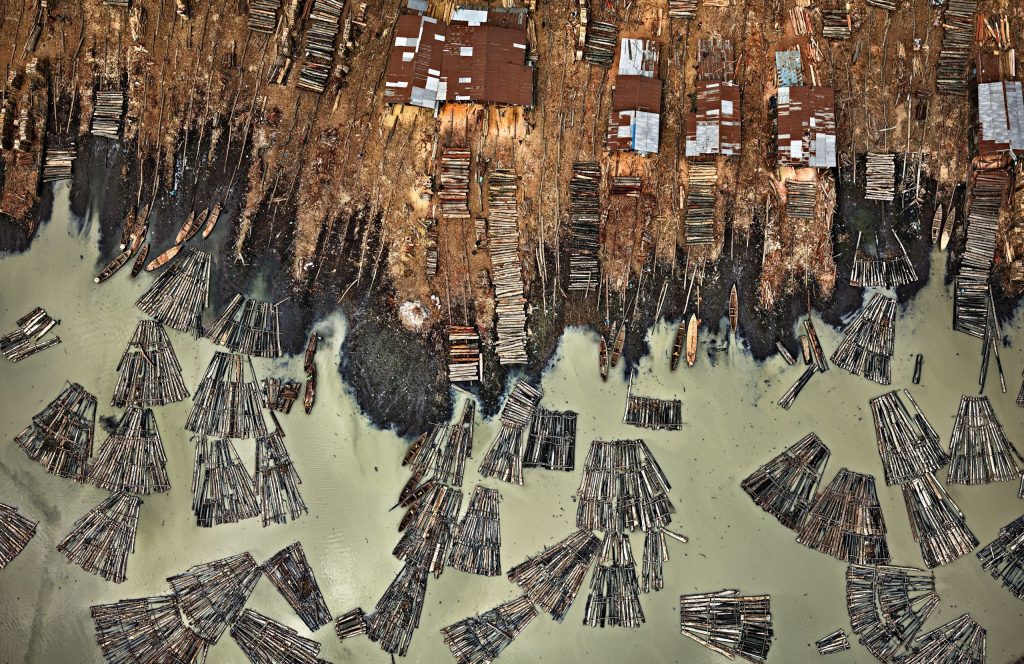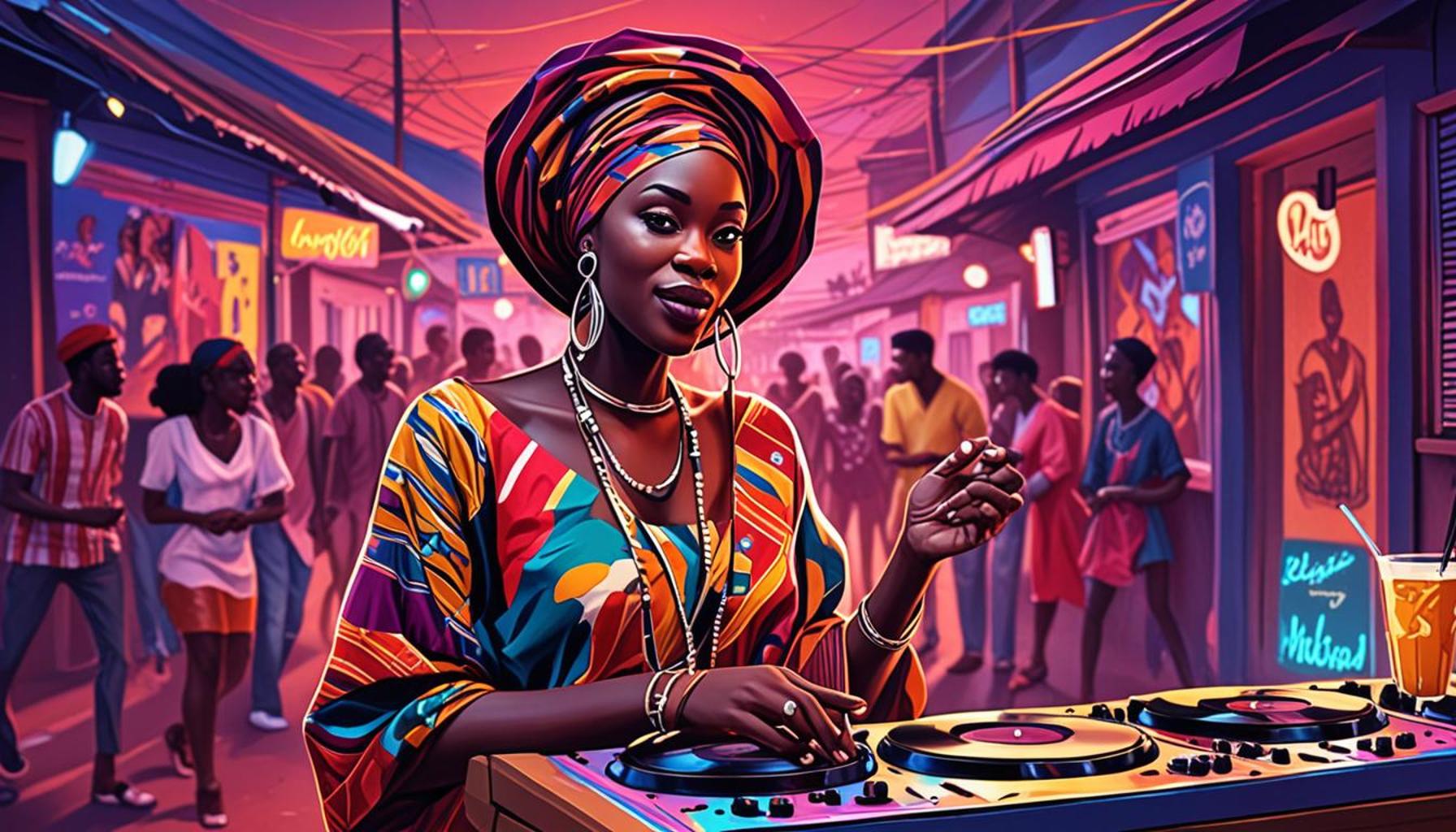Photography Guides: Capturing the Natural and Cultural Beauty of Nigeria

Exploring Nigeria’s Photographic Gems
Nigeria, a land teeming with diversity, offers a wealth of visual narratives that capture the essence of its landscapes and cultures. Photographic enthusiasts—whether seasoned professionals or eager amateurs—will find themselves at home amidst the stunning backdrops and rich traditions that this vibrant nation presents. Every click of the camera reveals stories that blend natural beauty and cultural heritage seamlessly.
Natural Wonders
When it comes to natural wonders, Nigeria boasts a plethora of sights that beckon photographers. The majestic Zuma Rock, often referred to as the “Gateway to Abuja,” towers at 725 meters high, providing a stunning vista for landscape photography. The granite monolith is especially breathtaking at sunrise and sunset, when the light casts dramatic shadows across the rock face.
The Ogbunike Caves, located in Anambra State, are another hidden gem. These caves, with their ancient formations and cultural significance, provide unique opportunities for both outdoor and adventure photography. Established as a UNESCO World Heritage Site, they’re surrounded by lush greenery and offer intriguing compositions for any photographer.
Don’t overlook the Obudu Plateau, known for its rolling hills and cooling climate. A trip to this northern region allows captured images of fog-laden mountains and vibrant biodiversity, including a variety of bird species found in the area. Photographers can experiment with nature photography and wildlife shots amidst breathtaking scenery.
Cultural Heritage
Nigerian culture is a tapestry woven with various ethnic groups, languages, and traditions, showcasing a vibrant essence that photographers can capture. The annual Osun-Osogbo Festival, which celebrates the goddess Osun, attracts thousands of participants and offers a picturesque tableau of traditional attire, rituals, and artistic performances.

The joyous masquerade festivals in different regions, particularly in the south, are visually stunning and rich in movement and color, presenting an authentic glimpse into cultural expressions. These events are social gatherings where heritage meets art, providing fantastic opportunities to capture lively portraits and dynamic action shots.
Urban Landscapes
Nigeria’s urban centers pulse with life and creativity, making them a playground for urban photography. In Lagos, often coined the “City of Aquatic Splendor,” photographers can capture the vibrant street scenes of Balogun Market, showcasing the hustle and bustle of everyday trade, or the stunning skyline with its mix of modern and colonial architecture.
Moving to Abuja, the capital city impresses with its well-planned structures like the impressive National Mosque and the National Assembly Complex, both remarkable subjects for architectural photography. The blend of rapid urban development and serene parks presents myriad compositions for all photographers to experiment with.
A Journey of Connection
Embarking on a photographic journey across Nigeria is not just about capturing striking images; it’s about connecting with its people and embracing their stories. Each photograph can serve as a poignant reflection of the cultural vibrancy and natural beauty that characterizes the nation.
Whether you are capturing the essence of a bustling market, the tranquility of a hidden natural escape, or the depth of cultural rituals, the potential for storytelling through your lens is boundless. As you prepare to unveil the hidden gems across this remarkable country, remember that every snap of the shutter opens a window into Nigeria’s heart. Grab your camera and set forth on a journey filled with discovery and artistic exploration.
SEE ALSO: Click here to read another article
Unveiling Nigeria’s Enchanting Landscapes
As we venture deeper into the natural and cultural beauty of Nigeria, keen photographers will discover a plethora of enchanting landscapes that invite exploration. Understanding the diverse settings ensures that each photograph tells a compelling story. Nigeria’s rich tapestry of terrains—from rolling hills to bustling coastal towns—offers unique opportunities that every photographer should seize.
Capturing the Landscape
Photographers aiming to depict Nigeria’s varied landscapes will find themselves inspired by the undulating terrains and vibrant ecosystems. The Nigeria National Park System is a treasure trove for nature photographers, with six prominent parks that display Nigeria’s biodiversity. Notably:
- Yankari National Park: Home to diverse wildlife such as elephants and baboons, this park is a paradise for wildlife photography. The natural hot springs offer relaxing backdrops for capturing human interactions with nature.
- Gashaka Gumti National Park: Nigeria’s largest national park is a haven for bird watchers and adventure seekers alike. Photographers can explore misty valleys and rugged mountains while documenting the stunning array of flora and fauna.
- Cross River National Park: This park features rich tropical rainforest and many endemic species, offering opportunities to photograph the interplay between light and shadow in dense foliage.
Each of these parks boasts unique ecosystems and breathtaking scenery, making them perfect for capturing the essence of Nigeria’s natural beauty. Ideal times to shoot are during the golden hours, at dusk and dawn, when the light illuminates the landscapes in a captivating way.
Cultural Photography: A Vibrant Narrative
Alongside the rich natural offerings, Nigerian culture presents equally captivating scenes for photographers. The plethora of ethnic groups, each with distinct traditions, ceremonies, and attire, provides a wealth of opportunities for cultural storytelling through photography. Events like the Eyo Festival in Lagos or the Argungu Festival in Kebbi State draw crowds and showcase the richness of cultural heritage. Here are some elements that can enhance your cultural photography:
- Traditional Attire: Capturing the vibrancy of traditional clothing during festivals and celebrations adds depth to portraits. The intricate designs often signify regional heritage and identity.
- Rituals and Ceremonies: Engaging in the documentation of rituals, from wedding ceremonies to initiation rites, can create powerful narratives that reflect the values and beliefs of different communities.
- Local Arts and Crafts: Markets brimming with local artists and craftsmen provide dynamic backdrops for capturing the intersection of art and daily life.
The resulting images not only highlight Nigeria’s dynamic culture but also contribute to a growing narrative that appeals to both locals and international audiences. By immersing oneself in the communities and observing their ways of life, photographers will be able to create authentic visuals that resonate with viewers.
As we navigate through Nigeria’s diverse landscapes and cultural expressions, it becomes clear that this extraordinary country offers endless possibilities for photography enthusiasts. From iconic natural landmarks to the richness of human tradition, each photograph serves as a portal, inviting others to explore and appreciate the profound beauty that is Nigeria.
Discover the Rich Tapestry of Nigeria through Photography
Nigeria, a land rich in vibrant cultures and breathtaking landscapes, offers an unparalleled opportunity for photographers seeking to capture its essence. From the majestic Zuma Rock to the serene Obudu Mountain Resort, the country’s diverse geography is a thriving canvas for visual storytelling. This article delves deeper into the photography guides available, highlighting crucial aspects that not only elevate photography skills but also maximize the cultural representation inherent in Nigerian settings.
The Importance of Cultural Context in Photography
Understanding the cultural nuances of Nigeria is essential for photographers. Each region offers a unique amalgamation of traditions, languages, and artistic expressions. Learning about the local festivals, such as the Osun-Osogbo Festival or the Durbar Festival, can enrich a photographer’s experience and provide context to their work. Engaging with local communities fosters relationships that can result in more authentic images, reflecting the heart and soul of Nigeria’s vibrant heritage.
Technical Skills for Capturing Nigeria’s Beauty
Equipping oneself with the right technical skills is vital for anyone looking to take stunning photographs of Nigeria’s landscapes and cultures. Understanding light, composition, and the use of equipment like DSLR cameras or even smartphones can greatly enhance one’s output. Photography guides specifically tailored to Nigerian environments offer tips on the best times to shoot, the significance of natural lighting, and how to approach various subjects with respect and sensitivity.
For those interested in documenting Nigeria’s wildlife, the availability of national parks like Yankari Game Reserve poses unique challenges and opportunities. Photographers can learn how to work with natural elements and wildlife behavior, turning every shot into a captivating story that showcases Nigeria’s ecological diversity.
Creating Lasting Connections through Photography
Ultimately, photography is not just about taking pictures; it’s about forming connections with the people and places that inspire them. By participating in local events and engaging with the rich narratives that Nigeria holds, photographers are not only documenting culture and nature but are also creating photo stories that resonate with a broader audience. These guides serve as a gateway to understanding the profound relationship between photography and cultural expression in Nigeria.
| Category | Details |
|---|---|
| Cultural Insights | Engagement with local traditions enhances authenticity of photos. |
| Technical Proficiency | Critical skills for capturing landscapes and wildlife effectively. |
The beauty of Nigeria is waiting to be explored through the lens of photography, revealing stories that can spark interest and appreciation across the globe.
SEE ALSO: Click here to read another article
Exploring Nigeria’s Cultural Heritage Through Photography
In addition to the stunning landscapes that define Nigeria, there lies an equally rich tapestry of cultural heritage that photographers have the privilege to explore and document. Diverse traditions, rich histories, and vibrant festivals all serve as intricate threads connecting Nigeria’s past and present, and provide captivating subjects for photography enthusiasts.
Festivals: A Visual Feast of Color and Tradition
Nigeria’s cultural calendar is packed with festivals that celebrate a variety of ethnic traditions and communal values. These events not only foster local unity but also create a unique platform for visual storytelling. Some of the most notable festivals include:
- Durbar Festival: A grand spectacle in the northern states, where horsemen dressed in elaborate traditional attire parade through the streets. Photographers can capture the stunning regalia and the exuberance of onlookers.
- Osun-Osogbo Festival: Celebrated annually in Osogbo, this festival honors the goddess Osun and attracts thousands of worshippers and tourists. The rituals, traditional drumming, and colorful processions provide endless opportunities for powerful imagery.
- Calabar Carnival: Dubbed Africa’s biggest street party, this month-long extravaganza in Cross River State features vibrant costumes, music, and dance. Capturing the energy and creativity on display can result in exhilarating photographs that reflect the spirit of the people.
Different festivals allow photographers to showcase dynamic scenes rich with cultural significance, but timing is crucial to ensure you encapsulate the energy of these events. Arriving early can help capture the preparations and the unique ambiance before the crowds surge in.
Living Museums: A Journey into History
Visiting sites that represent Nigeria’s cultural history can be an enlightening experience for photographers. Places like the Aso Rock Museum and the National Museum in Lagos feature artifacts, art, and historical narratives that reflect the country’s diverse culture. Photography here extends beyond capturing objects; it becomes about telling the stories behind the artifacts. Attending guided tours and engaging with local historians can provide deeper insights that enrich photographic narratives.
Furthermore, the challenges faced by traditional craftspeople in preserving their artistry provide poignant stories that resonate with contemporary audiences. Capturing artisans at work in places like Idanre Hill or the Ogun Festival can highlight the dedication involved in keeping traditions alive, and create compelling portraits that celebrate craftsmanship.
Urban Life: The Pulse of Nigeria
Cities across Nigeria, like Lagos, Abuja, and Port Harcourt, embody a vibrant urban culture ripe for documentation. Street photography, in particular, offers unique insights into the daily lives of Nigerians. From bustling markets like Balogun Market to the serene waterfronts along Victoria Island, the contrasts between urban hustle and the subtleties of community life can create visually engaging stories.
Pay attention to urban landscapes, architecture, and the lively street art that adorns city walls. Each element adds layers to your photographs, contributing to a comprehensive narrative of life in Nigeria. Engaging with locals not only enhances the visual story but also allows for a connection that reveals the essence of daily experiences.
By focusing on these cultural expressions, photographers can vividly capture Nigeria’s multifaceted identity. Each click of the shutter freezes a moment in time while providing an intimate glimpse into the richness of Nigerian culture. Through these lenses, the true spirit of the country is brought to life, inviting viewers to embark on their journey of discovery.
LEARN MORE: This related article may interest you
Conclusion: A Lens into Nigeria’s Heart
In the vast realm of photography, Nigeria stands as a vibrant canvas inviting artists and enthusiasts alike to capture its multifaceted beauty. From the breathtaking landscapes of the Niger Delta to the rich cultural heritage embedded in its festivals and urban life, every photograph tells a story waiting to be discovered. By delving into the heart of Nigeria’s traditions, festivals like the Durbar and Calabar Carnival provide a kaleidoscope of colors and emotions that photographers can encapsulate. Meanwhile, the historical richness found in places such as the National Museum in Lagos and artisan towns present opportunities for storytelling that transcends time.
Furthermore, urban life in cities like Lagos and Abuja illustrates the dynamic pulse of the nation, combining modern experiences with rich cultural nuances. By embracing a holistic approach to photography, drawn from both nature and culture, photographers not only document Nigeria’s beauty but also foster a deeper understanding of the people and traditions that thrive within its borders.
As you embark on your photographic journey through Nigeria, keep in mind that each click of the shutter is a chance to illuminate its stories. Engaging with locals, attending festivals, and exploring diverse landscapes fosters connections that go beyond the lens. Whether you are a seasoned photographer or just starting out, the natural and cultural beauty of Nigeria awaits, ready to inspire and ignite your creativity—a visual treasure trove waiting to be unveiled.


